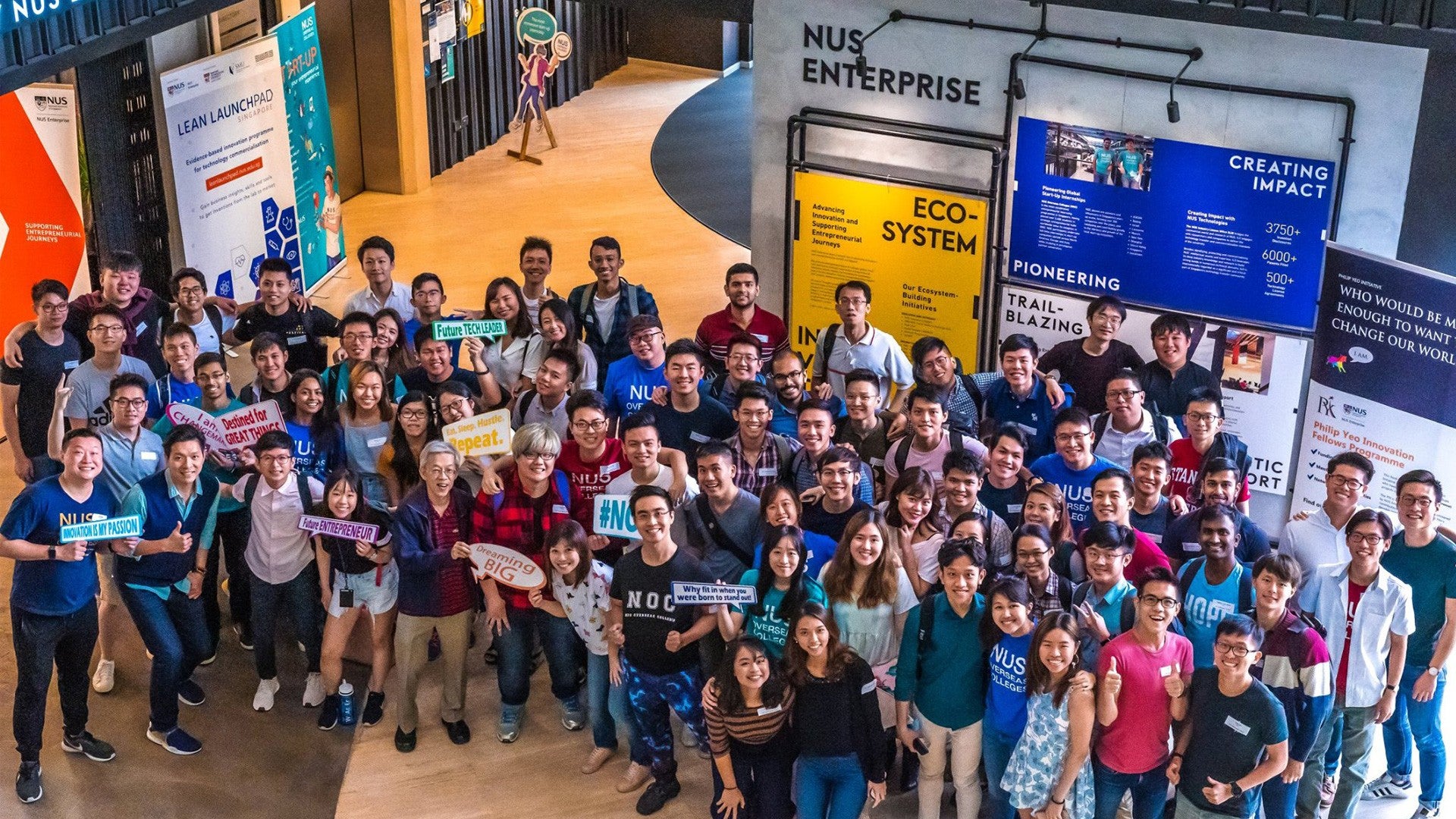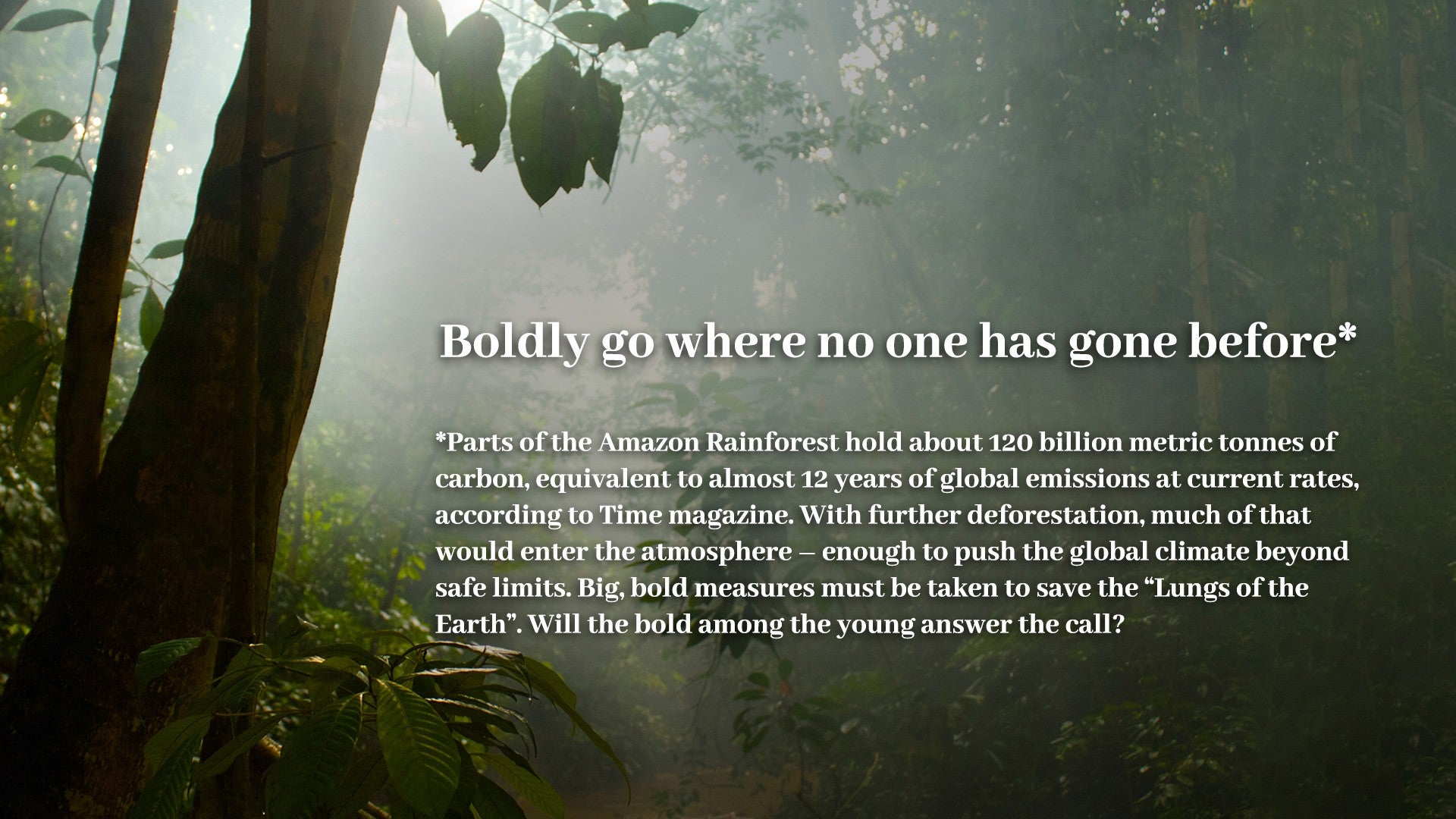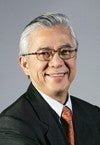A journey with kindred spirits and adventurous souls


Twenty years after the founding of NUS Enterprise and NUS Overseas Colleges (NOC), the entrepreneurial and start-up spirit is alive and embedded in NUS culture. It is manifested in various aspects of university life and endeavours such as over 15 NOC locations in US, Europe, Asia and Southeast Asia and BLOCK71, Singapore’s technology start-up ecosystem. Over the years, many NOC interns have become successful entrepreneurs. To date, nine NUS-supported start-ups have become unicorns and more than 1,000 start-ups have been founded by the programme’s alumni. These and more were recounted in an hour-long CNA special TV programme “Startup University” telecast on 10 August 2022. Below are excerpts from the programme:
NUS has emerged as the most influential force in Singapore’s start-up ecosystem. NUS Enterprise, the University’s entrepreneurial arm, has been playing a pivotal role in advancing innovation and entrepreneurship.
…. Today it is one of the largest incubators of start-ups in Singapore and nine NUS-supported start-ups are now unicorns, which are new companies valued at more than US$ 1 billion.
Professor Ho Teck Hua, Senior Deputy President and Provost told the programme: “In 2020, NUS accounted for close to 30 per cent of tech-based start-ups in Singapore. And NUS-affiliated start-ups account for 20 per cent of the venture capital funds raised by companies based here (Singapore).”
Guan Dian, an NOC alumna and co-founder of unicorn start-up PatSnap, shared how she caught the entrepreneurial bug during her University days: “If you join NOC you get to travel to the most entrepreneurial places in the world such as Silicon Valley and living there for a year, every day you see people who are in their 20s, their 30s, doing all kinds of cool stuff to try to change the world.” The start-up provides intellectual property and research and development analytics through its intelligence platform.
More than statistics and numbers
But there is something more significant than statistics and numbers. NUS Enterprise, NOC and BLOCK71 have been transformational for NUS, its community of students, staff, faculty and alumni, and even beyond.
From its very beginning, the NOC programme was designed to inspire entrepreneurial thinking and spirit in the young. It was designed to embolden the young to believe in themselves and what they can discover about themselves when pushed to explore the depth of their passions, when they take their pursuit to the very edge of their abilities and comfort zones. This process of self-discovery would make them realise that they are inferior to nobody.

Over the years, NOC alumni have been speaking about their transformative experiences during internships – from starting out as introverts to becoming more confident and adventurous adults comfortable with dealing with risks and uncertainties. Many have become successful entrepreneurs, with some working in Singapore’s start-up ecosystem as investors and mentors. Within NUS, we see the positive aspects of organisational culture change and community mindset change – a more vibrant and enterprising community of students, professors, staff and administrative leaders. More than ever, the NOC community and alumni are coming back into our ecosystem – inspiring the young, nurturing the next generation of entrepreneurs, enriching the entrepreneurial ecosystem and deepening the entrepreneurial culture.
When I launched NOC in 2001, I felt our young local graduates needed to go beyond Singapore. For good reasons, they had been trained to excel in a structured, efficiency-driven educational system that had equipped them with good technical skills. But the challenges facing Singapore then were such that a few adventurous souls were needed to break free of social and intellectual conformity, so as to thrive on “I-oriented” entrepreneurship. They needed to dare to dream their own dreams, exercise individuality, and learn from others who were pursuing their dreams with astonishing vigour and energy. America, Silicon Valley and Stanford University, where “I-oriented” entrepreneurs were creating new opportunities, were where the action was.
Boldly go where no one has gone before
Today, 20 years later, “I-oriented” entrepreneurialism is not enough. By creating wealth for themselves as individuals and their shareholders, “I-oriented” entrepreneurs can make a big impact in the stock market. But their impact on the “we”— whether lower-level employees, the local communities, or environment — is limited and may even sometimes be negative.
We live in an age where we still need to unleash the energies of creative and daring individuals who can help solve our problems. But our problems are increasingly the problems of the collective. Just think about climate change, sustainability, pandemics, resource scarcity, economic inequality and inflation, social polarisation … these are all problems of a society, of a region, of the world, these are the challenges of the global commons.
We now need “we-oriented” entrepreneurs, with the courage and complexity of mind and moral purpose to harness personal ambition in service of the collective good. This is about evolving entrepreneurship to the next level to reflect the new realities of the 21st century. We see this all over the world, from China to the USA, Europe to Africa, and here in ASEAN, with terms like ESG (Environmental, Social, and Governance), social inclusion, inclusive growth, shared prosperity and closing the income gap.

At our best, Singaporeans know how to be both “I-oriented” and “we-oriented”. Think of our early business leaders like Tan Kah Kee, Aw Boon Haw, Lee Kong Chian, who benefitted self and others. Today, Singapore needs “we-oriented” entrepreneurs with an inclusive mindset. They must have the confidence to learn from everywhere from Stanford to Surabaya, from Harvard to Ho Chi Minh City, from Western “I” entrepreneurial model to Eastern “we” traditions and values.
We need young Singaporeans with the ambition to be driven not only by the pursuit of their individual dreams and fortunes but by the common good as well. This is because our challenges are about the commons: the embattled ecology, dwindling resources and the race for more, crowding and rapid urbanisation, social and political peace. We live in an age of “we” problems.
One of NOC’s higher goals is to instil a culture and mindset of risk-taking, entrepreneurship and innovation for the betterment of self and society. This culture and mindset would energise young Singaporeans “to boldly go where no one has gone before”.
In venturing forth, it is also crucial to find adventurous and open-minded teammates to journey with. I count myself fortunate to have had bold unwavering support from among others, the late Jacob Phang, Lily Chan, Teo Chee Leong, Wong Poh Kam and countless others too many to name. Without kindred spirits, a fresh perspective and different thinking, change cannot happen.
To paraphrase the words of one of the greatest minds of the 20th century: We shall require a substantially new manner of thinking if humankind is to survive and rise to higher levels. (Albert Einstein, 1879-1955). These words ring even truer today.
About the author

University Professor Shih Choon Fong was President of NUS and its Vice Chancellor from 2000 to 2008. Over his almost nine years as President, he led NUS’ transformation into a research-intensive university respected in the global arena. He has also served as the Founding President of the King Abdullah University of Science and Technology from 2008 to 2013. A Harvard University graduate and a renowned fracture mechanics expert, he has been listed by the Institute for Scientific Information as one of the world’s most highly cited engineering researchers. He led the Association of Pacific Rim Universities for four years and was awarded the Centennial Medal by Harvard University’s Graduate School of Arts and Sciences in 2018.
© National University of Singapore. All Rights Reserved.

